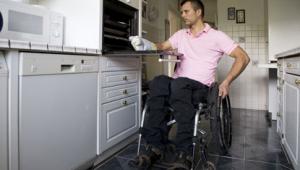Many of the recommendations in Fair society, healthy lives have been made in previous reports on health inequalities. I was part of the Marmot review team for a few months and we made a conscious decision not to make a long list of recommendations addressing every single aspect of health inequalities. Instead what the report seeks to do differently is to present health inequalities as a question of fairness and encourage all parts of society to play their part. Health inequalities are traditionally regarded as a problem for the NHS but as this report argues (reflecting the 1998 Acheson report) the NHS is but one player in this task.
Tackling health inequalities means addressing the social determinants of health - those factors that shape health and wellbeing such as social environments, the housing and neighbourhoods where people live, education, income, standard of living, occupation and working conditions. Clearly the NHS cannot tackle these issues alone, central and local government departments, the third and private sectors as well as individuals themselves have a role to play.
The report makes six wide-ranging recommendations. The primary recommendation is to give every child the best start in life. This means supporting Sure Start programmes, maternity services and parenting programmes so they can better deliver their services to those most in need. A great deal of evidence demonstrates that these programmes lead to long-term improvements in health and education outcomes – cutting these programmes would reverse the progress made in the last 10-15 years.
Another recommendation is to create and develop healthy and sustainable places and communities. Those working in planning, transport, housing or environment departments need to work with their colleagues in public health to plan and develop joint strategies and outcomes. The quality of parks, the number of take-aways in an area, road safety - all of these decisions influence how we live our lives and our level of health. Again, this recommendation is not necessarily about increasing spending, but about planning and delivering local services differently.
Acknowledging that health inequalities will not be solved overnight and that spending might be difficult over the next few years, the report’s recommendations are broken down into short, medium and long term. However, as the report argues, we can’t afford not to implement these recommendations. The estimated cost of illnesses related to health inequalities accounts, per year, for productivity losses of £32bn, lost taxes and higher welfare payments in the range of £20bn–32bn and additional NHS healthcare costs in England in excess of £5.5bn.
Disinvesting now in programmes such as early childhood education, life-long learning, active travel and improved green spaces will only store up costs for future generations. The big question is whether we are willing to invest for the future, in a fairer society in which all can enjoy a fuller, healthier life.
Tammy Boyce is a research fellow in public health at The King’s Fund











